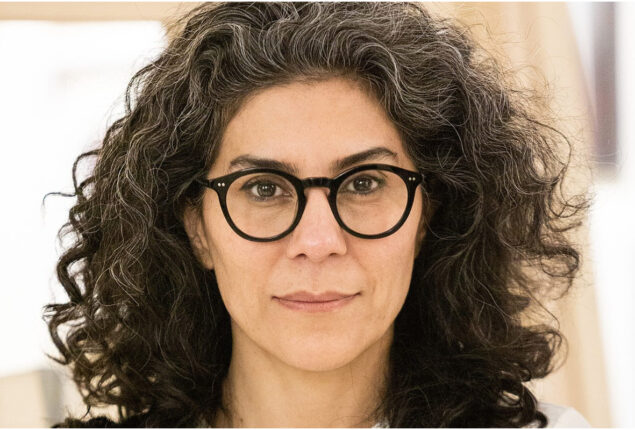Indian man finds father’s lost grave in Malaysia
Indian man, whose father passed away when he was just six months...

ENG vs. PAK: Babar Azam upset by criticism
Mahnaz Mohammadi an Iranian director sent a lock of her hair to a film festival in the state of Kerala in southern India After being prohibited from leaving the country.
Last week, Mahnaz Mohammadi was supposed to go to India to accept the Spirit of Cinema award at the International Film Festival of Kerala, but she was unable to do so (IFFK). In order to recognise filmmakers “whose passion for filmmaking is unwaveringly carried through in spite of the obstacles experienced by them,” the award was created in 2021.
Ms. Mohammadi, a vocal opponent of the Iranian administration, was unable to extend her passport before it expired in March.
IFFK jury member and Greek filmmaker Athina Rachel Tsangari accepted the honour on her behalf at a ceremony on December 9 in Thiruvananthapuram.
The audience cheered and applauded as Ms Tsangari clutched the lock of Ms Mohammadi’s hair.
In an email interview, Ms. Mohammadi stated that “cut hair is the emblem of the sorrow that we confront every day and every instant.” She also said that she “could not stop crying” after seeing the reaction she received at the film festival.
Iranian women have been demonstrating against the strict hijab laws—which mandate that all women cover their hair and dress in baggy clothing to hide their figures in public—for months.
A Kurdish woman from the western city of Saqqez named Mahsa Amini passed away in September after going into a coma while being held by morality police in Tehran for allegedly breaking the hijab ban. Her death sparked protests.
In support of the demonstrators, Iranian women have since burned their hijabs on bonfires, while women from all over the world have recorded films of themselves cutting their hair.
The unrest is currently seen as the Islamic Republic’s greatest threat since its founding in 1979. According to rights activists, government forces have already killed hundreds of civilians.
According to Ms. Mohammadi, the protests extended Iranian women’s right to live in freedom.
“The protesters are invincible. They have no other option under the totalitarian government, therefore they are fighting for their lives, she continued.
Ms. Mohammadi, a major advocate for women’s rights in Iran for the past 20 years, was born in Tehran.
Several accolades at international film festivals have been given to her first documentary, Women Without Shadows (2003), which follows the lives of abandoned and homeless women living in a state-run shelter. The 14th Rome Picture Festival’s special jury award went to her 2019 full-length film Son Mother, which had its world premiere at the 44th Toronto International Film Festival.
The filmmaker, who is 47 years old, is also no stranger to controversy.
She was given a travel ban by the Iranian government in 2008 as a result of the debut of her documentary Travelogue. The movie, which was filmed on a train between Tehran and Ankara, explained why so many Iranians were emigrating.
A wreath was laid on the tomb of Neda Agha Sultan, a 26-year-old who was shot during demonstrations against the re-election of Iranian President Mahmoud Ahmedinejad, the year before she was detained for opposing the trial of other women rights activists.
She was sentenced to five years in prison in 2014 “for operating a campaign against the Iranian state.”
In Iran, men “have gained” from the “patriarchal system,” but women “stay in bondage because of their gender,” Ms. Mohammad added. “All my life was spent facing constraints.”
Ms. Mohammadi claimed that because it was “put on us at school at the age of seven and covered all my ideas,” the hijab was a “symbol of many discriminations” for Iranian women.
After the southern Indian state of Karnataka banned Muslim girls from wearing the hijab in schools and universities early this year, the hijab has since ignited polarising debate in India, which has coincided with the protests in Iran. The order was contested before India’s Supreme Court, but the court was unable to rule on the matter in October.
We shouldn’t be against the hijab, Ms. Mohammadi remarked when asked about her opinions on the present discussion in India. We support giving women the freedom to decide whether or not to wear the hijab.
Catch all the Entertainment News, India News, World News, Breaking News Event and Latest News Updates on The BOL News
Download The BOL News App to get the Daily News Update & Follow us on Google News.